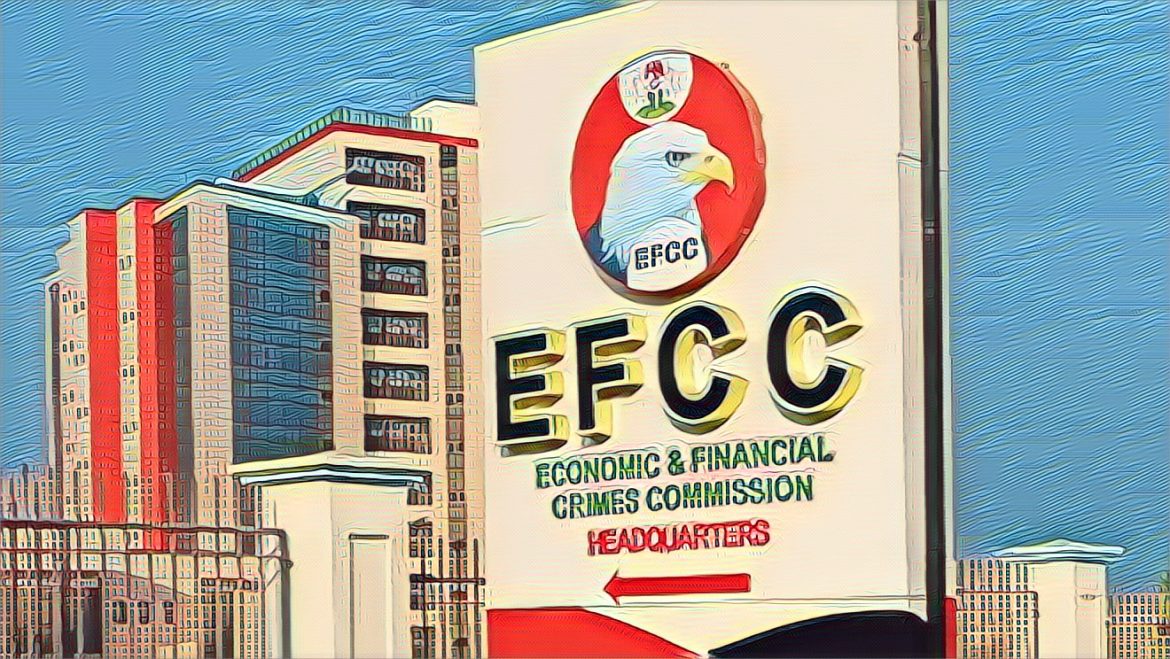In every government institution, an invisible hand often wields significant influence over decision-making, especially on critical matters. This hidden force typically escapes the notice of many team members, who assume decisions are free from external interference.
The Economic and Financial Crimes Commission (EFCC) is no stranger to this invisible hand. The head of the Commission and a select few are aware of its presence, but most staff remain oblivious. By granting the President of Nigeria the authority to appoint the EFCC Chairman, lawmakers have inadvertently created a channel for this unseen influence. The President, and by extension the Presidency, wields this power.
Section 2 (3) of the Economic and Financial Crimes Commission (Establishment) Act, 2004, clearly states, “the Chairman and members of the Commission, other than ex-officio members, shall be appointed by the President,” and the appointment must be confirmed by the Senate.
This provision ties the EFCC to the President’s whims from its inception, stripping it of the autonomy necessary to function effectively. The Chairman, bound by the President’s directives, often sacrifices liberty for dependency.
Under these conditions, the EFCC Chairman lacks the courage to prosecute the President’s loyalists without fear of repercussions. This dependency hampers the EFCC’s ability to fight financial crimes effectively. Until the appointment power is removed from the President, the EFCC will remain under his dominance, lacking the ethical courage to act independently.
Even the most dedicated and well-intentioned Chairman cannot overcome this presidential interference. No matter how skilled, their effectiveness is undermined by the President’s influence.
This situation fuels public perceptions of the EFCC’s selective enforcement of financial crime laws. The President, a politician with loyalists and supporters, may protect those who helped him rise to power. This protection weakens the EFCC’s power to target major financial criminals, forcing the Chairman to tread carefully to avoid removal. The President can also suspend or remove the EFCC Chairman, adding another layer of control.
Past EFCC Chairmen’s dismissals often trace back to presidential influence. To avoid similar fates, the EFCC handles high-profile cases connected to the President with extreme caution. This restraint stifles the EFCC’s ability to wage an effective war against financial crimes and money laundering.
Most prosecuted and convicted ex-governors, ministers, and business figures had weak links to the President or had fallen out of favor. For instance, former Delta State Governor James Ibori and Bayelsa State Governor Diepreye Alamieyeseigha (now deceased) were targeted due to their conflicts with then-President Olusegun Obasanjo.
EFCC now limits its actions to public petitions rather than initiating investigations into suspected individuals and organizations prone to financial crimes. Government ministries, agencies, departments, the legislature, the judiciary, and the private sector are often left unchecked.
Nigeria’s environment is rife with financial crimes, especially in politics, where individuals become wealthy quickly through political participation or public service. For instance, National Assembly members conducting oversight often act as contractors to the same organizations they oversee, despite conflicts of interest. The Niger Delta Development Commission (NDDC) exemplifies such unethical practices, yet EFCC appears indifferent.
Why isn’t the EFCC investigating legislators for budget padding? Why isn’t it scrutinizing the budgets of government ministries, departments, and agencies, comparing line items to executed projects? State governors’ abuse of Federal Account Allocation Committee remittances, including security votes and derivation funds, also goes unchecked.
Despite acknowledging that Nigerian banks are involved in 70% of the country’s financial crimes, the EFCC does not probe bank CEOs over questionable funds, foreign exchange manipulation, and round-tripping. Financial institutions have lost about N159 billion to fraud since 2020, yet no investigations are initiated. Key players in the Nigerian capital market are not being investigated for unlawful stock price manipulation.
With crude oil exports being a major revenue source, why isn’t the EFCC investigating possible mismatches between actual production and revenue receipts? Additionally, suspected financiers of terrorism and kidnapping aren’t being prosecuted for money laundering.
Since its formation, the EFCC has struggled to curb financial crimes and money laundering, contrary to the intentions of the Financial Action Task Force (FATF) on Money Laundering, an intergovernmental organization created by the Group of Seven (G7). The FATF aimed to bolster the global fight against money laundering, especially as Nigeria was once listed among 23 non-compliant countries. This led to the EFCC’s establishment, expanding its scope to include terrorism financing and economic and financial crimes.
Despite rampant corruption and financial crimes in Nigeria, the EFCC’s efforts fall short. High-profile cases with significant economic impacts are either overlooked or mishandled unless sanctioned by the invisible hand. Prosecuting internet fraudsters and minor offenders does not justify the EFCC’s existence; these cases should be handled by the Nigeria Police Force.
To eliminate illicit wealth and growing corruption, Nigeria must revise the process for appointing and removing the EFCC Chairman. Insulating the office from presidential influence is crucial, given Nigeria’s low political culture. This reform is essential for the EFCC to function independently and effectively.
Source: The Guardian


